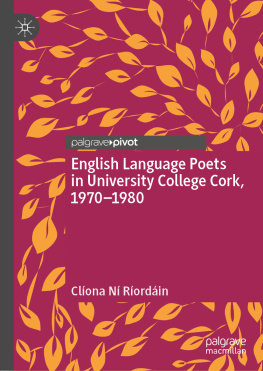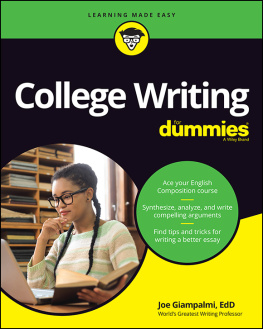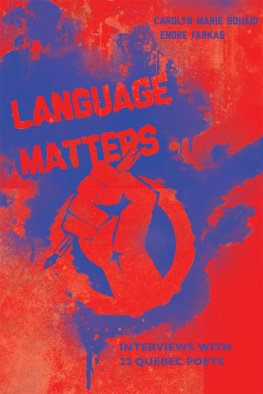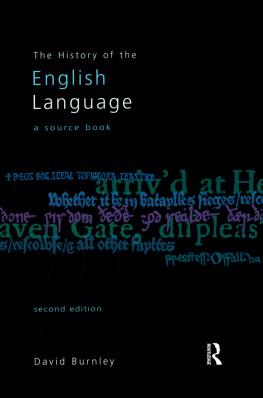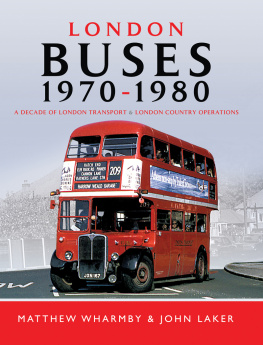Clíona Ní Riordáin - English Language Poets in University College Cork, 1970-1980
Here you can read online Clíona Ní Riordáin - English Language Poets in University College Cork, 1970-1980 full text of the book (entire story) in english for free. Download pdf and epub, get meaning, cover and reviews about this ebook. year: 2020, genre: Art. Description of the work, (preface) as well as reviews are available. Best literature library LitArk.com created for fans of good reading and offers a wide selection of genres:
Romance novel
Science fiction
Adventure
Detective
Science
History
Home and family
Prose
Art
Politics
Computer
Non-fiction
Religion
Business
Children
Humor
Choose a favorite category and find really read worthwhile books. Enjoy immersion in the world of imagination, feel the emotions of the characters or learn something new for yourself, make an fascinating discovery.
- Book:English Language Poets in University College Cork, 1970-1980
- Author:
- Genre:
- Year:2020
- Rating:5 / 5
- Favourites:Add to favourites
- Your mark:
- 100
- 1
- 2
- 3
- 4
- 5
English Language Poets in University College Cork, 1970-1980: summary, description and annotation
We offer to read an annotation, description, summary or preface (depends on what the author of the book "English Language Poets in University College Cork, 1970-1980" wrote himself). If you haven't found the necessary information about the book — write in the comments, we will try to find it.
English Language Poets in University College Cork, 1970-1980 — read online for free the complete book (whole text) full work
Below is the text of the book, divided by pages. System saving the place of the last page read, allows you to conveniently read the book "English Language Poets in University College Cork, 1970-1980" online for free, without having to search again every time where you left off. Put a bookmark, and you can go to the page where you finished reading at any time.
Font size:
Interval:
Bookmark:
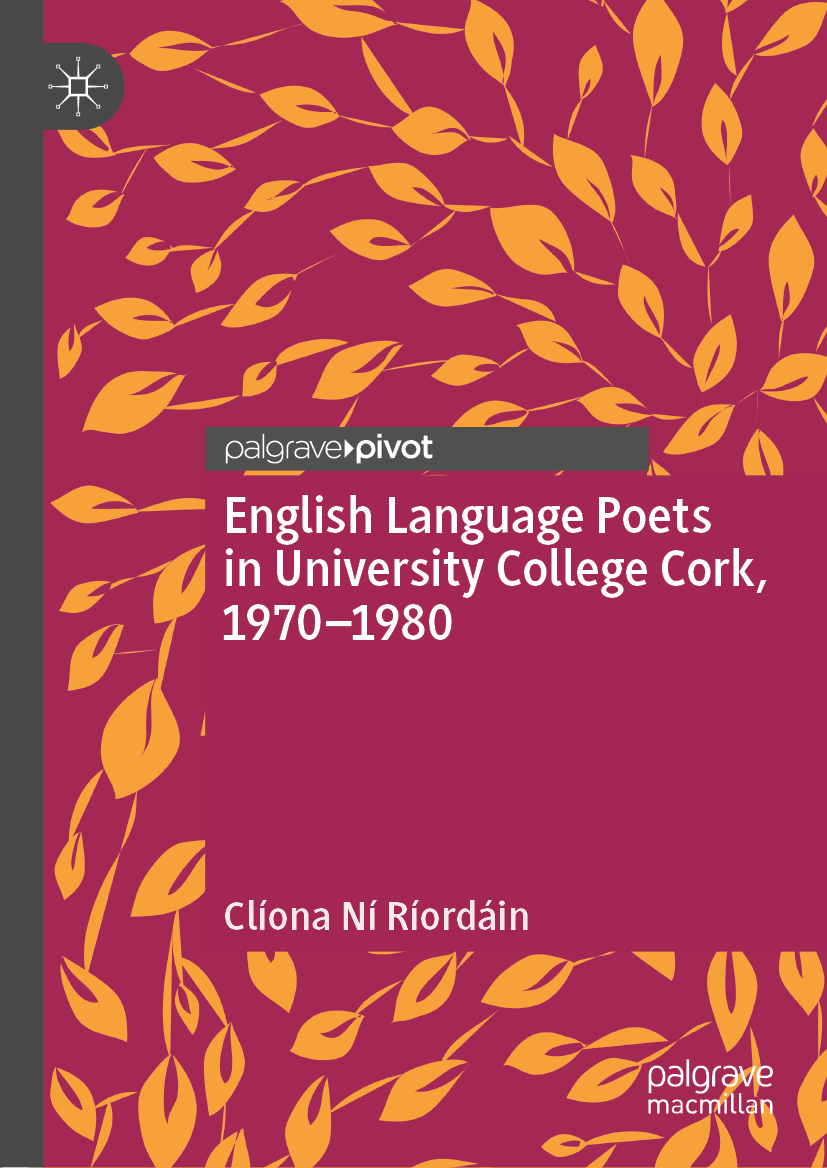
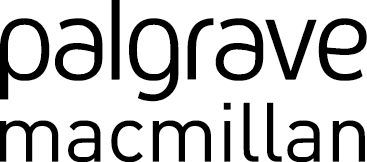
Cover illustration: Melisa Hasan
This Palgrave Macmillan imprint is published by the registered company Springer Nature Switzerland AG
The registered company address is: Gewerbestrasse 11, 6330 Cham, Switzerland
I ndil cuimhne Toms Rordin
Opening my advance copy of this book on my computer, I was caught by a fragrance reaching menot from the decade that is its subjectbut from the early 1960s, from my own undergraduate years in University College Cork. A delightful time, a moment of freedom to discover people and ideas that were contemporary, with eccentric but mostly benevolent teachers to look after the past centuriesI have never learned so much or so fast, about life, art and philosophy, as I did then in a small, provincial, traditional college, in a provincial city. Of course that whiff is the fragrance of youth, but not onlythe city had a musical, theatrical, cinematic and artistic culture of the kind that flourishes in places where the whole audience moves in a body from play to concert, cinema to gallery; and the university drew on a large province, for which it was still a true centre for commerce, culture and education. Of the five years I spent as a student, what I remember most vividly is the sense of a cohort, of a group of people thinking, arguing, reading and discovering life, together.
But Clona N Rordin s book makes me ask, what was missing? Literary culture was lopsided. Although Cork had produced notable writers who were still alive and writing, notably Sen OFaolin , who had challenged the narrowness of the national debate by founding The Bell in the 1940s, much of their work was officially unavailable. Censorship was active and especially directed at fiction by Irish authors. There was a Film Festival where we saw uncensored European films, but no Book Festival to bring us The Golden Ass or The Well of Loneliness . Although (of course) we procured and read the banned books, native and foreign, we were also absorbing the message that literature and the state were at odds. And poetry, though (again of course) we were reading poetry, seemed remote from the place and time we were living in. Something that for the almost-clandestine poet I then was gave a feeling of unreality to the pursuit.
So that it was an apocalyptic moment when a newly appointed lecturer, Sen Lucy , read the poems of the emigr Corkman Patrick Galvin to a student societyI can still hear his slightly Anglo voice almost possessed by the rhythmic violence of Galvins The Kings are out :
With knives of ice
And dressed to kill
The wine flows down from Summer Hill
Christ! Be on your guard tonight
The Kings are out
Galvin was to stay abroad for almost another decade but the unmistakeable voice continued to be accessible in the broadsheets and pamphlets that occasionally erupted from his English base.
I left Cork for Oxford and then Trinity College Dublin . I went on writing, and presently published poetry in Dublin , returning to see family and friendsand then in the early seventies I happened into a student event, the launch of the Irish-language journalINNTI, that showed how much things had changed in the College. Poetry was not just visible, rooted in the place and the voices of the students who were writing, it was unapologetically in print and challenging a national readership. Older poets in English and Irish, Sen Rordin , Mirtn Direin , Pearse Hutchinson , were there to validate a student enterprise.
The phenomenon of INNTI has been widely commented on; now Clona N Rordin (who is among those who have written on that group of poets) turns her attention to the English-language strand of poetry writing that surfaced at UCC in the same period. The two lines are entangled, some poets writing in both languages, and it must be that the simultaneous presence on the campus of two writers whose verse was celebrated in Irish and English, respectively, Rordin and John Montague , helped to precipitate that sense of possibility, that made people identify themselves as poets.
N Rordins study draws on Karl Mannheim s concept of a generation and points to the introduction of free secondary education in the Republic by Donogh OMalley at the end of the sixties as the public event that gave young people in Munster permission to develop their imaginations in new ways. Id suggest that the rapid withering away of censorship after 1967 (when a new Act liberated a huge backlog of previously banned books) must have added to the sense of freedom. But her focus on an educational centre and on the impact of some exemplary teachers is both just and a corrective to the widespread emphasis on individual talent as the sole source of poetry.
But John Montagues influence was decisive. He was ten years younger than the agonising bachelor Rordin; he was embarking on his second marriage; he was professional and international in his approach. Thomas McCarthy is quoted: New collections of poetry came our way, our attention was drawn to reviews. We were made familiar with the activities that are the norm in a literary life. McCarthy, the late Sen Dunne , Greg Delanty , Theo Dorgan , Gerry Murphy , Maurice Riordan and the late Gregory ODonoghue , all born in the 1950s and all undergraduates in the 1970s, went on to make a mark as poets, widely various in style but all engaged in the life of poetry in their country and abroad. The progression happened in due course, if at uneven pace; the absence of women from the procession has been remarked. The mutual support of a cohort seems to have been lacking; female poets were perhaps still moving to a different time signature.
Font size:
Interval:
Bookmark:
Similar books «English Language Poets in University College Cork, 1970-1980»
Look at similar books to English Language Poets in University College Cork, 1970-1980. We have selected literature similar in name and meaning in the hope of providing readers with more options to find new, interesting, not yet read works.
Discussion, reviews of the book English Language Poets in University College Cork, 1970-1980 and just readers' own opinions. Leave your comments, write what you think about the work, its meaning or the main characters. Specify what exactly you liked and what you didn't like, and why you think so.

